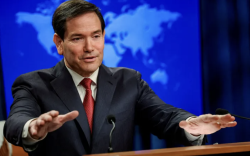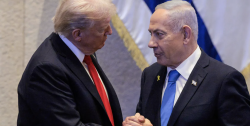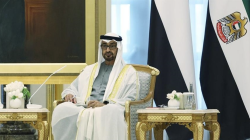Brexit: European leaders agree extension to 31 January
- 2019-10-28 14:51:30


 Pierre Rayer: Art, Science, and Happiness: The Universal Mission of Transmission to Future Generations through Patronage at the Louvre Abu Dhabi
Pierre Rayer: Art, Science, and Happiness: The Universal Mission of Transmission to Future Generations through Patronage at the Louvre Abu Dhabi Ahly crowned Super champions after dramatic extra-time win over Modern Future FC
Ahly crowned Super champions after dramatic extra-time win over Modern Future FC Yemeni Honey..A Development Wealth Threatened By Conflict And Climate Change
Yemeni Honey..A Development Wealth Threatened By Conflict And Climate Change California wildfires: Millions warned of possible power cut
California wildfires: Millions warned of possible power cut Central African rebels launch attacks near capital
Central African rebels launch attacks near capital Washington Welcomes Saudi and Emirati Support for Yemen’s Sovereignty, Regional Security
Washington Welcomes Saudi and Emirati Support for Yemen’s Sovereignty, Regional Security Trump team reportedly 'frustrated' with Netanyahu over fears he would undermine peace process
Trump team reportedly 'frustrated' with Netanyahu over fears he would undermine peace process France: 3 women stabbed in Paris metro, suspect arrested
France: 3 women stabbed in Paris metro, suspect arrested Airstrike in Sudan’s Kordofan Kills and Injures 31 Civilians During Christmas Celebrations
Airstrike in Sudan’s Kordofan Kills and Injures 31 Civilians During Christmas Celebrations UAE, Pakistani leaders discuss expanding economic, energy ties in Islamabad meeting
UAE, Pakistani leaders discuss expanding economic, energy ties in Islamabad meeting
